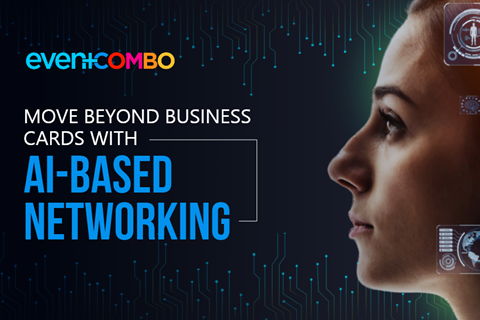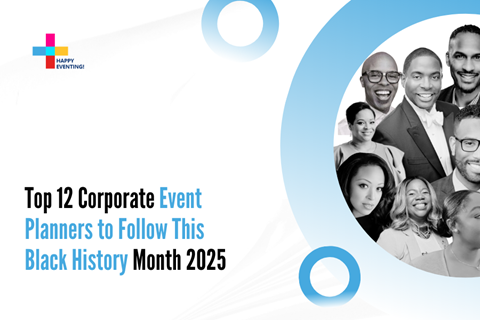

Pulling an unfathomable stunt, the event industry adapted to and embraced sudden and unprecedented changes, that consumed the world in the past couple of years, by overcoming the odds. Not only did it survive the pandemic-induced social distancing, but also emerged stronger and flourishing with path-breaking events, be it virtual, hybrid, or in-person and now Metaverse. And, the success can be clearly imputed to the lightning-fast development of intuitive event technologies that surfaced along the way.
Although hybrid and online events proved their mettle during the global crisis, they are now facing tough competition from the long-awaited in-person events, which are back in action and rapidly rising to their former glory. And, amid all these transitions, technology remains a constant which is only pushing the industry towards disruptive innovations.
Why Do You Need to Follow Event Technology Trends?
The tech progress witnessed over the last few years has highlighted how the event industry can weather any storm when enabled with the right solutions. Event technology, since its inception, was majorly confined to automation of tasks at in-person events, with its capabilities branching out at a comparatively slow pace. The need to explore and expand the potential arose when geographical distancing and virtual events created a higher dependency on technology. Managing engagement of attendees, increasing outreach, simplifying data analytics, and taskforce management for event planners needed to be powered by cost effective technologies – while increasing access and opportunities beyond geographic boundaries.
However, tech solutions aren’t some magic potions and with so many innovations all around, it’s imperative to justify why the technologies are crucial in today’s landscape, and how they can help cut back some of the costs and add value to events.
The event technology trends we are talking about are already making a red-carpet entry in the events universe per se – in-person, hybrid, virtual and Metaverse, and in 2023 they are set to positively impact event thought-leadership funnel, performance, results, and the industry’s future.
Top Event Technology Trends for 2023
1. Branded Event App – Having information, updates, and details of events handy at one place or source not only captures the attendees’ undivided attention but also saves their time, ensuring a better and more interactive experience. Event Apps are here to stay and the brains behind them are working to evolve features every single day with a sharp focus on personalization, networking, notifications, and security, accessible right from mobile phones. Serving both sides - the planners and the attendees - a branded event app is, by far, the most sought-after technology for events of all formats – in-person, hybrid, or virtual.
2. Gamification – Virtual fatigue has crept into events sooner than expected and tackling attendee engagement is becoming more important than ever. Gaming mechanics or competitive elements/challenges in the usual modus operandi can deliver an immersive and interactive experience, making attendees feel more involved. Gamification is undoubtedly the best way to keep attendees hooked on current events and ensure their return in future events, because who doesn’t like to show their skills, participate in competitions, enjoy a little limelight, and also WIN some brownie points (sometimes actual incentives)!
3. Live Streaming – Live streaming, especially during hybrid and in-person events, will be one of the most popular event trends of 2023 used extensively for expanding reach to a wider audience through multiple channels, across different demographics, while also generating revenue. In addition to usual live streaming, being able to stream pre-recorded videos during the event at a pre-decided time, avoiding any hiatus or technical glitches, adds so much to the event experience, and the latest technologies are enabling that seamlessly. An example is Simulive which is hosting pre-recorded sessions or streaming them to social media with a live interactive experience, while also sharing them on demand later. In today’s era of event tech revolution, you only have to decide the reach and the target audience, while the technology is already holding the fort!
4. Augmented and Virtual Reality - Integrating AR/VR in events through avatars and holograms can transport virtual event attendees beyond screens to an in-person event experience. These technologies are, in fact, on the verge of unveiling new dimensions for events, with innovative tech solutions like customizable open Metaverse platforms based on Web3. Led by the remote culture, virtual events are here to stay owing to the comfort, convenience, and cost efficiency they provide to the attendees. However, failing to keep up attendee engagement and interest can result in lower attendance, higher costs, and unfavorable results. The rising attendee expectation is carving an additional strategy niche for event planners where delivering immersive experiences through AR/VR has become imperative.
Surprisingly, the technology also holds the potential to boost the in-person event experience. Such events can use VR/AR for demonstrations of products that are not transportable, giving a tour of the manufacturing facility located in a different continent, or meeting the top management through avatars or holograms right at the event venue. Imagination here has no bounds!
5. Multilingual/Live Translation – With events conquering geographical barriers and proliferating attendee reach across the globe, using technologies that support translation in multiple languages can pave the way to success, making events more inclusive and far-reaching. Although this forward–thinking feature has its own challenges, it’s worth integrating in events. Imagine the draw of attendees if they know that language isn’t a barrier at an event, and how it can enable event planners to take up the courage of organizing in-person or virtual events worldwide to gather audiences of different dialects.
6. Contactless Check-In – Pandemic or no pandemic, contactless check-in at events is a default setting now, and the sharp drop in long check-in queues and waiting time is the new cool. This has added benefits like cost reduction by eliminating wastage of paper (used in physical tickets) and omitting the need of hiring additional staff to support the check-in process. Attendees can simply scan their e-tickets at all entry points. Automated entries at event booths or rooms also map the movement of attendee data which helps in post-event/during-event data analysis to find out what the attendees are liking or which booth is attracting more crowd. This, in turn, helps in changing or boosting engagement strategies, real-time or for future events.
7. Environment-Friendly Events – Speaking of in-person events, flying over continents to attend an event, deploying teams for post-event cleaning, and disposing of prints, catalogs, and badges, not only are humungous tasks at times but also put a fair amount of burden on the environment. Consequently, the industry in 2023 is looking for more sustainable and environment-friendly event solutions. Going digital instead of printable, enabling highly functional hybrid events to prevent transportation footprints, and managing during-event technologies with recyclable and biodegradable options for staples like disposables and food footprints, all backed by robust technology are going to be not just popular but crucial trends. With discussions intensifying on reversing climate change, greener events supported by advanced event technologies will gain a heightened focus in the days to come.
Embracing these top event technology trends in 2023 and defining an umbrella strategy can tremendously enhance event experiences, which ultimately cater to the foremost agenda of the event which is offering a wholesome immersive experience to the target audience, enabling them to connect with a community they identify with.
Make your 2023 events more impactful, far-reaching, and value-adding with Eventcombo. Explore enterprise solutions at - https://bit.ly/3BX2tUO

Networking is one of the most valuable ways to discover boundless opportunities and for 77.7% of business professionals , in-person conferences open a greater scope to make rewarding connections.

When planning a healthcare fair, the goal goes beyond booking a venue and sending out invites. You’re creating an event that brings together healthcare professionals, researchers, and exhibitors, all seeking value and...

Diversity and inclusion are at the heart of the events industry, where planners are focused on creating experiences that bring together people from all walks of life.